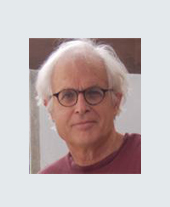- 11 May, 2022
- 0
- Winslow Myers
- Winslow Myers
Beyond our nuclear march of folly
Beyond our nuclear march of folly
by Winslow Myers
696 words
The planet and its national and international institutions are not even close to facing the realities that confront us. Instead, we live in a fantasy la-la land, or what Greta Thunberg might call blah-blah land. No one is more insanely deluded than Vladimir Putin, who launched a horrific and unnecessary war in which he could unilaterally decide to use nuclear weapons at any moment, based in grievance and an obsolete nostalgia for empire.
Real men and women in touch with the actual do not kill children. This reality includes growing tendencies toward autocratic rule. Dictators, some possessing nuclear weapons, try to distract their citizens from loss of freedom by externalizing enemies. We rely upon a security system based in nuclear deterrence, which can break down at any time intentionally or inadvertently.
And we face a host of challenges like the global climate emergency, resolvable only by a new level of transnational cooperation. Wars between nations are not only sublimely irrelevant to these realities but tragic setbacks to forward motion. India is experiencing killer heat waves, giving us a sense of what is coming if we fail to get our act together. In Siberia the frozen tundra is thawing, releasing large quantities of methane. Surely that would be a more relevant focus for Mr. Putin’s attention.
Even as wars drag on in Ukraine or Yemen or South Sudan and too many other places, we can either go the fatalistic route and say thank God we have nukes to keep dictators from doing even worse things, even as we continue to rely weapons that will almost inevitably do us in somewhere down the time-stream unless we change—or we can think of deterrence as a bridge across to new thinking that leads to moving beyond the nuclear age.
The nine nuclear countries spend trillions on weapons based on the illusory premise that only if “we” have them will they never be used. But we refuse to spend a tiny fraction of that amount on a permanent conference of high-level officials that can talk through the insanity of the present system and brainstorm together how to get beyond it.
How much does the deterrence system itself heighten tensions between nuclear superpowers? Can national leaders be made to see how much it is in their interest to forge treaties that begin a verifiable cycle of nuclear weapons reduction? The conference should include those countries who don’t have nuclear weapons but would like to, and also those countries who agree already that nuclear weapons are worse to have than not have. As one step, the United Nations Treaty on the Prohibition of Nuclear Weapons awaits the first signer from among the nine nuclear powers.
A Roman general once said, “If you want peace, prepare for war.” In the nuclear age, if we want peace, we have no choice but to prepare preventively for peace. That requires building agreement about fundamental principles across diverse political systems.
The global internet so far has been something of a double-edged sword. While it spreads hate and misinformation, it also can help build a shared vision based in truth. There’s enormous potential in the networks that are linking across the world, neurons connecting a kind of global brain that can share scientific knowledge and creative solutions applicable in many locations. This sharing might even, someday, become more powerful than national governments, because it will amplify all that humans have in common, transcending the ginned-up enemy stereotypes that are authoritarian nationalism’s stock-in-trade. Truth will always manage to eventually sneak past their filters.
A few big truths remain a good starting point for building agreement: We have much more in common than what separates us. We share a single planet and single life-support system, a common evolutionary history, a collective wish to leave our children a better life than ours, and an interdependent future where our survival depends upon each other.
We see this interdependence of survival most acutely in the proliferation of weapons of mass destruction. But even when these are unbuilt, interdependence between humans and between humans and the biosphere will remain our inescapable condition—a reality upon which to build a more workable international security regime.
_________________

© 2023 PeaceVoice
winslow